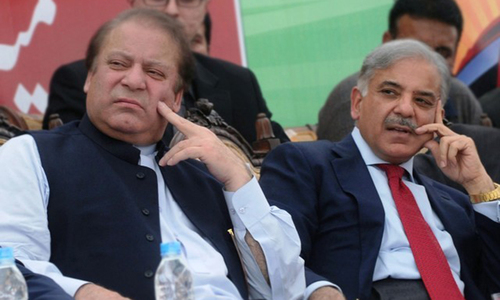The world over both politicians and businesses profit hugely from their alliance. Individual companies and business lobbies as a matter of course use their influence over politicians to bend policies and regulations, win lucrative contracts, ward off local and foreign competition at the expense of consumers, as well as secure such things as subsidies, tax exemptions and “investment incentives”. Needless to say that everywhere from the most developed countries to the most ill-equipped emulators such as Pakistan all favours come at a price.
The relationship between private business and politics is prevalent in Pakistan across major business interests and it cuts across political affiliation and ideology. In most cases, however, this association isn’t too obvious as the business lobbies prefer to work from the shadows to avoid public exposure and criticism.
But the secrecy is compromised and the partnership is conspicuous in certain areas. Take the sugar industry where it is hard to separate political elite from business elite. This is primarily because politicians or their close relatives happen to own or co-own a very large number of sugar factories in Punjab, Sindh and Khyber Pakhtunkhwa. The most discreet take the self-reassuring safe route where they run their business through their front men.
The Shahbaz Sharif government’s attempt to quietly tweak the decade-old ban on the establishment of new and relocation of existing mills from one place to another in the province highlights the fusion of politics and private capital, and how policies and regulations are changed to draw more benefits.
The provincial industries department had amended its 2006 order more than a year ago to allow relocation of the existing sugar mills from one place to another allegedly to facilitate Prime Minister Nawaz Sharif, Chief Minister Shahbaz Sharif and their family in shifting their factories to the southern-most districts — Rahim Yar Khan, Bahawalpur and Muzaffargarh — with higher sucrose recovery rates than in central Punjab.
The fact that other sugar barons with manufacturing plants in the south Punjab have successfully thwarted — at least for now — the Sharif family’s move to relocate factories through a legal challenge in the courts underscores the reality that members of a lobby who would put aside their political affiliations to put up a united front inside and outside parliament for their collective good, do not hesitate from taking on one another when it comes to protecting their individual interests.
The Sharifs are not the only political family with high stakes in the country’s sugar industry. Others like former president Asif Ali Zardari and his friend-turned-rival Dr Zulfiqar Mirza own sugar factories in Sindh. In Khyber Pakhtunkhwa, a cabinet minister in the government of Gen Pervez Musharraf reportedly owns five of the six sugar factories in that province.
Apart from the Sharif family, the politicians who own or have owned sugar mills in Punjab include the Chaudhrys of Gujrat, Jahangir Tareen, Zaka Ashraf, Nasrullah Dreshak, Humanyun Akhtar Khan, Makhdoom Ahmed Mahmood, Anwar Cheema, Mian Mohammad Azhar and Khusro Bakhtiar.
The country’s sugar industry, the second largest agro-based sector after textiles, grew rapidly under political patronage and protection through tariff and non-tariff restrictions on imports and generous subsidies from 41 mills in 1987 to 91 by the mid-2000s before a ban was placed on the establishment of new factories because of excess installed capacity. The Sharifs are said to be among the first few political families to venture aggressively into the sugar market in the 1980s and 1990s.
“The government interference in the sugar market, and for that matter in any other market, creates rent for both factory owners and growers [which] is a major reason for the quick expansion in the manufacturing capacity in Punjab and Sindh,” argues Khalid Mirza, who served in top executive positions in the corporate sector before first heading the Security Exchange Commission of Pakistan and later the Competition Commission of Pakistan in the 2000s.
Over the years, the sugar industry has become quite important as over one million direct and indirect jobs are linked to it. It is a source of livelihood for a very large number of farmers who usually get higher-than-global prices for their harvests and are richer than average farmers because of government interventions in the sugar market at the behest of strong lobbies of both growers and factory owners represented in all major political parties and parliament.
“Sugar is a tightly regulated industry and its seasonal crushing operations involving large-scale sugarcane procurement cannot be run without assistance from the administration. That’s probably why the distinction between a politician and a businessman blurs in this industry,” an analyst based in Karachi contends. “Besides, in the years the industry expanded the banks were controlled by the government and you needed political connections for obtaining credits — and then defaulting on them,” the analyst who works for a major brokerage firm adds on condition of anonymity.
Mr Mirza points out that “such alliances represent conflict of interests and are opposed to public good. Someone holding a public office cannot be expected to ignore his business interests and make decisions for the larger good. This kind of association normally leads to formation of cartels in the economy, creates rent and distorts the markets through patronage”.
“It is pretty difficult to avoid a mixture of politics and business. But such links can be weakened by unleashing market forces.”
Published in Dawn, February 11th, 2017













































